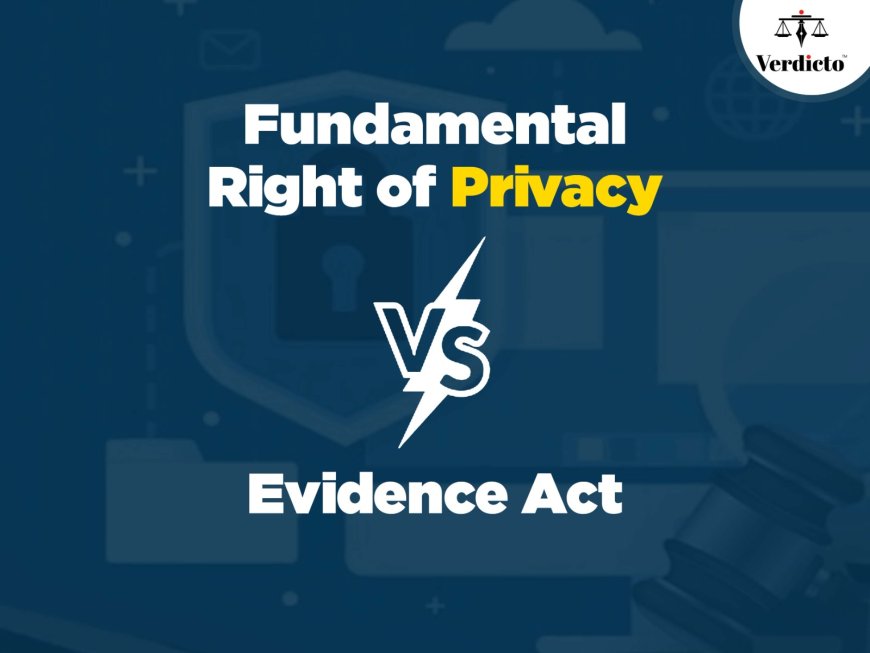Privacy vs Evidence: SC Upholds Use of Secret Recordings in Divorce Cases
The Supreme Court rules secretly recorded calls between spouses are admissible in divorce cases, balancing the right to privacy under Article 21 with Section 122 of the Evidence Act. Read the implications.

In a significant ruling that redefines the interplay between marital privacy and evidentiary law, the Supreme Court on Monday (July 14, 2025) held that secretly recorded telephonic conversations of spouses are admissible in matrimonial proceedings. The judgment has sparked an intense debate on the delicate balance between the fundamental right to privacy under Article 21 of the Constitution and the exceptions carved out under the Indian Evidence Act, 1872.
The case in brief
The controversy arose from a matrimonial dispute pending before a Family Court in Bathinda, Punjab. The husband produced a compact disc containing recordings of his private phone conversations with his wife, aiming to substantiate allegations of cruelty. The wife challenged the admissibility of these recordings before the Punjab and Haryana High Court, arguing that the clandestine recordings violated her fundamental right to privacy and were barred under Section 122 of the Indian Evidence Act, which protects communications during marriage.
The High Court agreed, holding that such recordings were inadmissible as they constituted a breach of the wife’s privacy and were protected marital communications.
What the Supreme Court held
A bench comprising Justice B.V. Nagarathna and Justice Satish Chandra Sharma set aside the High Court's decision, restoring the Family Court order which had allowed reliance on the recorded conversations.
Justice Nagarathna observed:
“If the marriage has reached a stage where spouses are actively snooping on each other, that is in itself a symptom of a broken relationship and denotes a lack of trust between them.”
The apex court ruled that secretly recorded conversations between spouses can indeed be used as evidence in matrimonial cases. It emphasized that such evidence is relevant to determine the genuineness of allegations like cruelty or misconduct, and therefore, cannot be shut out merely on grounds of privacy.
Section 122: Shield or sword?
Section 122 of the Evidence Act states:
“No person who is or has been married shall be compelled to disclose any communication made to him during marriage by any person to whom he is or has been married.”
The provision is designed to protect marital confidence and preserve the sanctity of the marital relationship by preventing forced disclosures of private communications.
However, the Supreme Court clarified that this protection under Section 122 does not automatically extend to bar the admissibility of evidence voluntarily produced by a spouse, especially when the marriage is evidently strained.
Right to privacy: A counterpoint
The wife had argued that secretly recording her private conversations was a grave invasion of her fundamental right to privacy, a right firmly recognized in the landmark KS Puttaswamy judgment (2017).
However, the court seemed to adopt a contextual approach — balancing the privacy interest against the need to establish the truth in matrimonial disputes. The judgment implicitly recognizes that privacy rights are not absolute and must yield in certain circumstances to competing interests of justice.
Why this matters
This decision has far-reaching implications for matrimonial litigation:
-
It may embolden spouses to engage in secret surveillance, potentially deepening distrust.
-
It underscores that the right to privacy is not absolute and is subject to reasonable restrictions, especially when weighed against the need to ascertain the truth in judicial proceedings.
-
It reinterprets the protective scope of Section 122 of the Evidence Act in the context of broken marriages.
The road ahead
The detailed judgment is still awaited, which will shed more light on how the court reconciled the competing claims of privacy under Article 21 and evidentiary necessity under the Evidence Act.
END
✅ For more updates on how Indian courts are shaping privacy, family law, and evidence, stay tuned to Verdicto on YouTube, Instagram, and Twitter for more updates.







